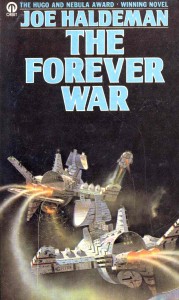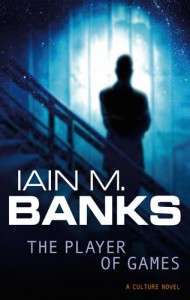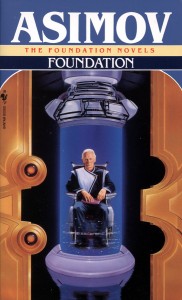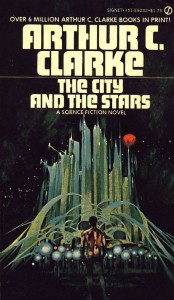WELCOME TO THE FIRST ANNUAL DUST JACKET HUGO AWARDS MONTH!
Beginning Wednesday, and for the next 5 weeks, your dedicated reviewers at Dust Jacket will be casting their eye over the 2011 Hugo Award nominees. 5 novels in 5 weeks, all leading up to the announcement of this year’s winner at Worldcon 2011 on August 20th.
WHY REVIEW THE HUGO AWARD NOMINEES
Named after Science Fiction pioneer and Amazing Stories editor Hugo Gernsback, the Hugo Awards are the world’s preeminent literary SF awards. Established in 1953 and held annually since 1955, the Hugos are awarded for excellence in the field of science fiction and fantasy. In essence, the Hugo Awards are the Oscars of science fiction and fantasy literature.
The list of past winners of the Hugo Awards reads like a who’s who of SF literature – Arthur C Clarke, Isaac Asimov, Robert Heinlein, Orson Scott Card, Philip K. Dick, Roger Zelazny, Ursula K. Le Guin, William Gibson, Larry Niven.
Many of the genuine classics of the genre have won the award: Dune, The Demolished Man, Starship Troopers, Stranger in a Strange Land, Lord of Light, Ringworld, Ender’s Game. So far, we’ve reviewed 3 of the award winners both on the website and in our podcasts – The Dispossessed, RendezvousWith Rama and The Forever War. The Foundation Series, which we reviewed in our inaugural podcast, was also awarded a special Hugo for Best All-Time Series.
The Hugos are the most prestigious awards in science fiction literature, the best the genre has to offer. If we’re to compile the list of greatest SF novels of all time, it’s important not just to look at the classics, but search for modern masterpieces as well.
The Hugo Awards represent the best of the best. Let’s see how 2011 stacks up.
THE NOMINEES
Five novels have been nominated as the best Science Fiction of 2010-11. The nominees are:
Blackout/All Clearby Connie Willis
Feed by Mira Grant
The Dervish House by Ian McDonald
Cryoburn by Lois McMaster Bujold
The Hundred Thousand Kingdoms by N.K. Jemisin
THE REVIEWS
Our Hugo Award reviews will follow the same basic structure of all Dust Jacket reviews, with one additional feature thrown in for good measure; not only will we be reviewing the novels themselves, but we’ll look at what chance we think each novel has of taking home the big prize.
Once the winner is announced, we’ll follow up with a review of last year’s winning novels: The Windup Girl by Paolo Bacigalupi and The City and the City by China Mieville. How will 2011 stack up against the previous year’s Hugo winners?
BEHOLD…THE FUTURE
So join us on Wednesday as we launch into Hugo Awards Month with our review of Lois Bujold McMaster’s Cryoburn.
 Welcome to the fifth installment of Dust Jacket, our regular revue of the best th
Welcome to the fifth installment of Dust Jacket, our regular revue of the best th Welcome to the fourth instalment of Dust Jacket, our regular foray into the world of Sci-Fi literature. As always, I’m joined by Luke, self-confessed sci-fi junkie and world’s harshest critic.
Welcome to the fourth instalment of Dust Jacket, our regular foray into the world of Sci-Fi literature. As always, I’m joined by Luke, self-confessed sci-fi junkie and world’s harshest critic. Welcome to this special third edition of Dust Jacket. During our #0 edition podcast, the Nerd Culture Podcast crew reviewed the first three novels in Isaac Asimov’s Foundation series. Lauded as one of the greatest sci-fi series ever written, Foundation has the unique honour of being the series awarded the Best Series of All Time by the Hugo Awards, beating out such luminaries as Lord of the Rings and the Lensmen saga.
Welcome to this special third edition of Dust Jacket. During our #0 edition podcast, the Nerd Culture Podcast crew reviewed the first three novels in Isaac Asimov’s Foundation series. Lauded as one of the greatest sci-fi series ever written, Foundation has the unique honour of being the series awarded the Best Series of All Time by the Hugo Awards, beating out such luminaries as Lord of the Rings and the Lensmen saga. Welcome to the second installment of Dust Jacket, Nerd Culture Podcast’s fortnightly review of the greatest Sci-Fi novels of all time. I’m joined by Luke Walker, NCP regular and world’s harshest critic.
Welcome to the second installment of Dust Jacket, Nerd Culture Podcast’s fortnightly review of the greatest Sci-Fi novels of all time. I’m joined by Luke Walker, NCP regular and world’s harshest critic.







